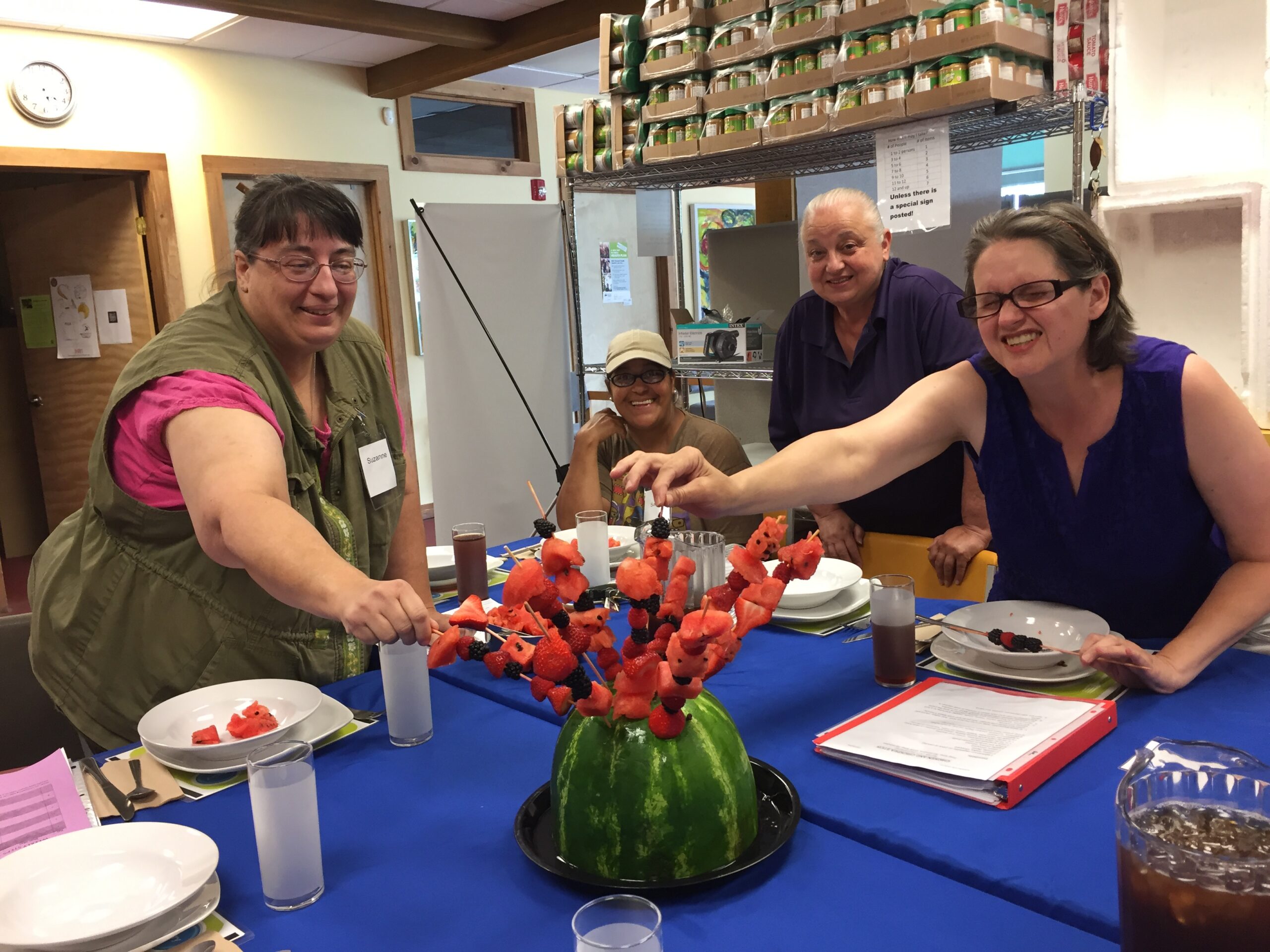For Vermonters who struggle with food insecurity, fruits and vegetables are some of the first things that go when the budget gets tight. Let’s face it, consumers get a bigger caloric bang for their buck when they purchase foods that are high in fats and calories. Because fruits and veggies are expensive, they often fall off the shopping list. That means all the important vitamins and micronutrients in colorful produce go missing from their diets.
Did you know that food insecurity in Vermont has increased by one-third during the coronavirus pandemic? It’s true! Food insecurity has gone from 18.3% to 24.3%, according to a statewide survey conducted by the University of Vermont at the end of March 2020.
The need is greater now than ever before and we worry about the future as COVID numbers rise this fall.
According to the study, the increase in food insecurity strongly correlated with employment status. Unsurprisingly, among survey respondents overall, 45% had lost their jobs, been furloughed or had their hours reduced during the pandemic. Among food insecure Vermonters, two-thirds (66%) had experienced job losses or work disruptions since the outbreak of the pandemic.
Who is affected?
In our culture, the people who are most vulnerable to food insecurity are our senior citizens and our children.
Many seniors live on fixed incomes. So when rent goes up or they incur unexpected expenses, the only wiggle room that remains in the budget is in the food category. This food insecurity often results in eating smaller portions or purchasing fewer expensive items like fruits and veggies. Moreover, many seniors that are food insecure resort to only eating once each day. Meanwhile, seniors like Barb who fill their plates with plenty of veggies and lean protein stay healthy and strong.

Additionally, good nutrition is especially important for children who need a varied diet for healthy brain and physical development. Because children often live in families with a single parent, food budgets can be slim. Thus, children’s diets can be filled with empty calories and lack lean proteins, fruits and vegetables.
Meanwhile, happy, healthy children like Audrina eat varied diets. With lots of fruits and vegetables, she keep treats, such as soda, to a minimum.

You can help prevent food insecurity
Please help our neighbors in need by making a financial contribution to the 2020 BENNINGTON EMPTY BOWLS, COVID EDITION now. 100% of proceeds will be used to purchase food for distribution at the Kitchen Cupboard in the coming year.
Donations can be made between November 1 and November 15 through our Go-Fund-Me page. We will also accept donations through the GBICS website or by check (GBICS Empty Bowls, PO Box 702, Bennington, VT 05201.)
In order to be successful, we ask that after you make your own donation, you forward this request to three of your friends who share your concern for those in our community who are experiencing food insecurity. Just think of the impact we could have if each of your friends then sent on the message to three of their friends who share this concern.
Please help us ensure there are no empty bowls in our community! For additional information about GBICS or EMPTY BOWLS, please call (802) 447-3700.
